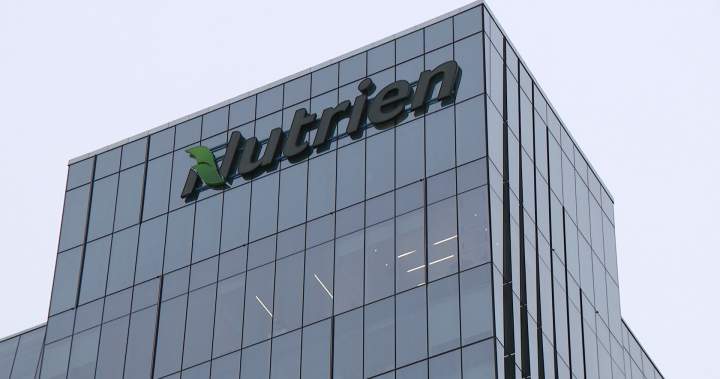One of the world’s biggest potash producers plans to ship south of the border to get its product to global markets. The plan isn’t sitting well in Ottawa, with the federal government pushing Saskatchewan-based Nutrien to change course.
Nutrien is pursuing the development of a new export facility at the Port of Longview, Wash. The company estimates the cost of the full build-out to total between US$500 million and $1 billion.
Saskatchewan Premier Scott Moe weighed in on the company’s plans on Monday.
Moe believes B.C. Premier David Eby is partly to blame for the company’s decision to focus outside of Canada.
“We need to be a welcoming environment, we need to drop some of the political rhetoric coming out of B.C,” Moe said. “In fairness, that has already cost us the investment of one port facility in the potash industry. That’s disappointing and that’s not being part of Team Canada.”
Over on the West Coast, Eby called the Nutrien decision the “worst of both worlds” while referencing the current struggles with trade between Canada and the U.S.

Get daily National news
Get the day’s top news, political, economic, and current affairs headlines, delivered to your inbox once a day.
“If you live in Saskatchewan, that resource is in the hands of Donald Trump. He may decide to put a tariff on Saskatchewan potash that passes out of the state of Washington. He may decide to close the border to Saskatchewan potash if he decides that Canada has done something that offends him. And so it puts Saskatchewan’s resources in a precarious place. And it denies British Columbia a chance for port expansion.”
Federal Transport Minister Steven MacKinnon also said Monday his government is working to change Nutrien’s course and have its terminal built on the B.C. coast instead.
“I’m disappointed at this decision and we’re hoping to persuade the company to change its mind,” MacKinnon said.
Meanwhile, Agriculture Minister Heath MacDonald called Nutrien’s decision “premature.”
“We have a government that knows and understands that logistics plays an integral part of getting product to market. We want to deal with that.”
Nutrien says it evaluated roughly 30 Canadian and U.S. ports and that the Port of Longview best met the company’s technical and commercial requirements, and said it complements its existing Canadian port capacity while supporting long-term production growth in Saskatchewan.
At the port of Vancouver, potash exports were up 26 per cent for the first half of 2025 from the same period of 2024.
John Corey, president of the Freight Management Association of Canada, says that a lot of politicians are saying the right things but are not coming up with results fast enough.
“Talking the talk is one thing, and walking the walk is another thing. In the next little while, we need to start seeing some tangible things happen that the government has control of,” said Corey.
He says this was a financially conscious business decision for the company and that legislation could prevent more development from leaving Canada.
Corey points to the company’s decision as a sign that Canada needs to pick up the pace on its own projects.
“If we have a robust supply chain, and if we export deals that are being signed as we speak, we’re going to need a supply chain to get those goods from Canada, the middle of Canada, to the ports to get to those customers,” says Corey.
A final decision is expected in 2027.
© 2025 Global News, a division of Corus Entertainment Inc.
Premiers, federal ministers urge Saskatchewan company to change U.S. export plans





